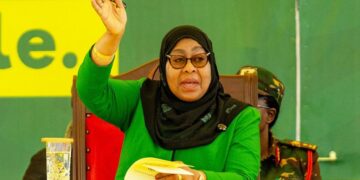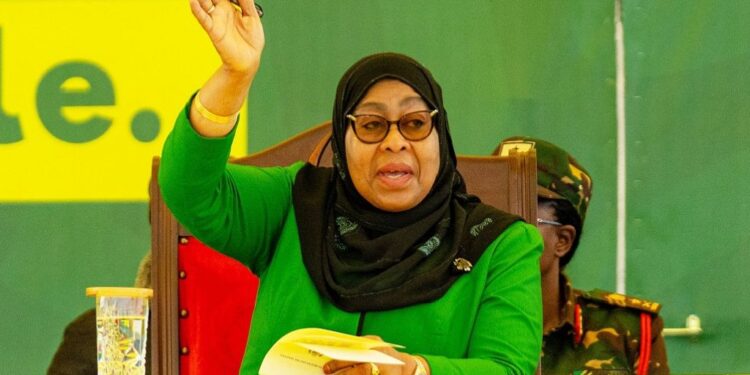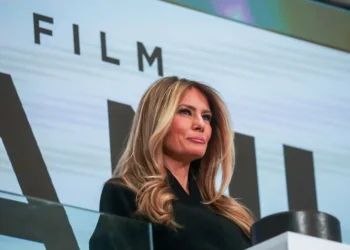By Enyichukwu Enemanna
Political parties on Monday ended rallies in Tanzania as the East African nation prepares to vote on Wednesday in an election analysts say is more of coronation for the incumbent President Samia Suluhu Hassan who has disqualified several opposition figures while others are in prison.
Opposition candidate Salum Mwalimu who has emerged as the primary challenger to President Hassan also ended his campaign rally on Monday. His final rally in Dar es Salaam featured impassioned calls to vote against the “poverty” and “unemployment” brought by CCM policies.
With mass disqualification and imprisonment of prominent opposition leaders, Mwalimu of the CHAUMMA party becomes de facto main opponent to challenge the long-ruling Chama cha Mapinduzi (CCM).
16 other candidates are also on the ballot facing President Hassan. Critics have however noting that many others on the ballot have not campaigned actively.
President Hassan’s CCM has held power since Tanzania’s independence in 1961.
The party now stands out in a region where other liberation movements are losing ground, maintaining control in a nation with a $1,200 annual per capita income despite growing calls for reform from a younger generation.
The lead-up to the vote has been marked by what Amnesty International terms a “climate of fear,” with authorities cracking down on opposition leaders, journalists, and civic groups.
Key rival Tundu Lissu is imprisoned on treason charges, and his deputy was recently arrested.
This political climate, coupled with voter disillusionment, has led to predictions of low turnout and raised fears of potential unrest after the opposition called for election-day protests.
President Hassan, 65 became the East African nation’s first female head of state after the death of sitting President John Magufuli in 2021. He also faced criticism for his authoritarian clampdown on dissent and controversial attitude towards the Covid pandemic.
President Hassan, who had been Vice-President appeared like a breath of fresh air with her warmer and friendlier style. She initiated reforms that seemed to represent a radical departure from her predecessor’s policies.
Her four Rs policy – “reconciliation, resilience, reform and rebuilding” – reopened Tanzania to foreign investors, restored donor relations and mollified the International Monetary Fund (IMF) and World Bank.
These have however been overshadowed by the drastic shrinking of the political space and the targeting of government critics and opposition voices. Critics say it has become more ruthless now than it ever was under Magufuli, with regular abductions and killings now reported.



































